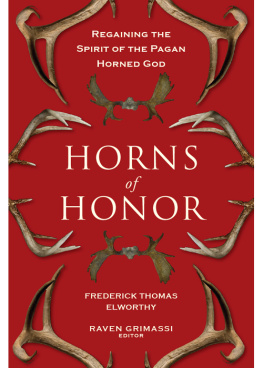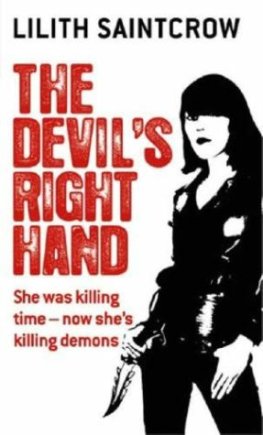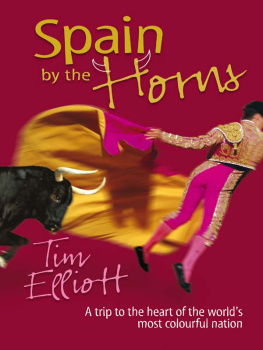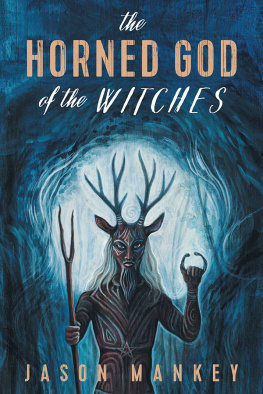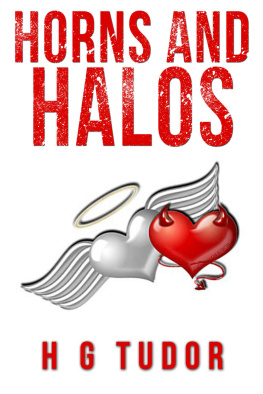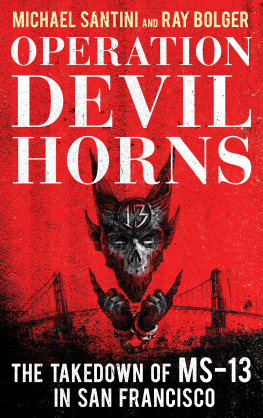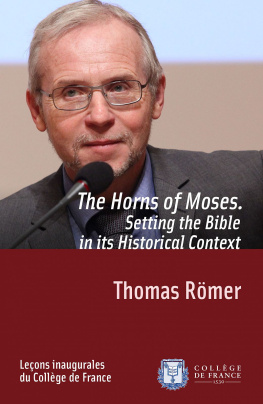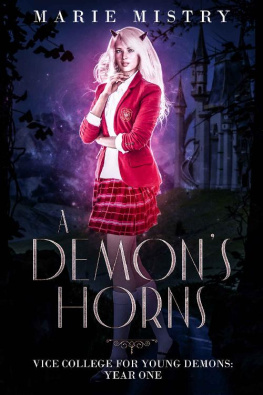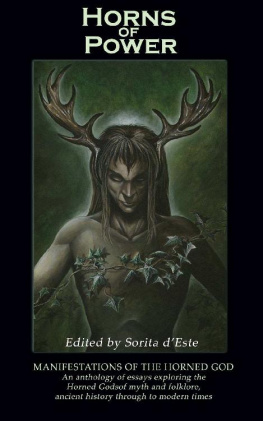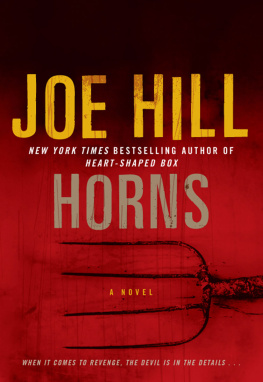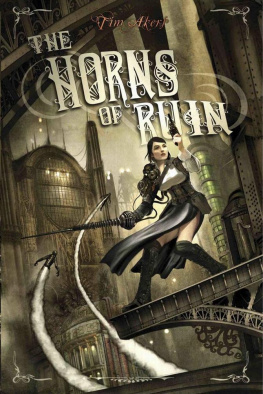
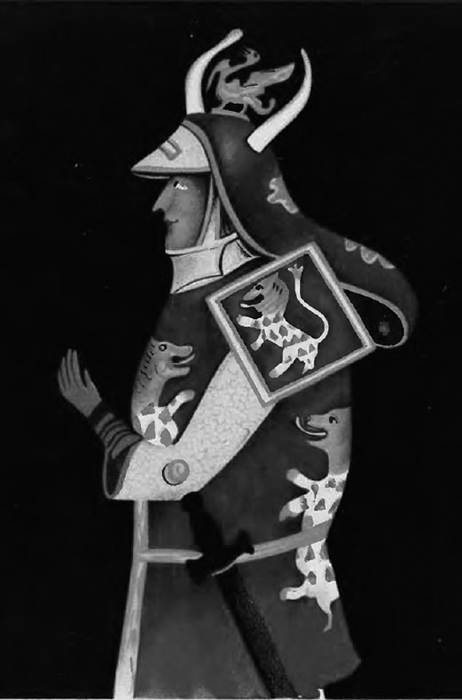
This edition first published in 2013 by Weiser Books.
Red Wheel/Weiser, LLC
With offices at:
665 Third Street, Suite 400
San Francisco, CA 94107
www.redwheelweiser.com
Copyright 2013 by Weiser Books
All rights reserved. No part of this publication may be reproduced or transmitted in any form or by any means, electronic or mechanical, including photocopying, recording, or by any information storage and retrieval system, without permission in writing from Red Wheel/Weiser, LLC. Reviewers may quote brief passages. First published in 1900 as Horns of Honour And OtherStudies In the By-Ways of Archeology by John Murray, Albemarle Street.
ISBN: 978-1-57863-543-6
Library of Congress Cataloging-in-Publication Data available upon request.
Cover design by Jim Warner
Interior by Kathryn Sky-Peck
Typeset in Adobe Garamond
Printed in Canada
FR
10 9 8 7 6 5 4 3 2 1
The paper used in this publication meets the minimum requirements of the American National Standard for Information SciencesPermanence of Paper for Printed Library Materials Z39.48-1992 (R1997).
www.redwheelweiser.com
www.redwheelweiser.com/newsletter
CONTENTS
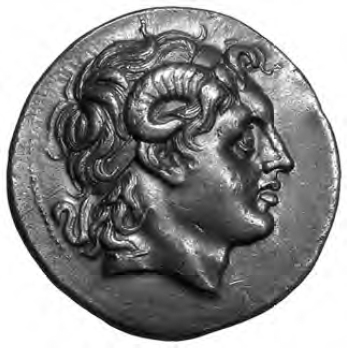
INTRODUCTION BY RAVEN GRIMASSI
ANIMAL HORNS HAVE LONG been an important component of ritual, magic, religious, and spiritual traditions. The average person in contemporary mainstream society is likely to be surprised that horns still play such a role in modern times. Today's Pagans still regard horns as a symbol of power, fertility, and protection. They are worn by many Pagan priests and priestesses, and modern-day shamans. Horns also appear in a large number of Witchcraft rites. The antlers of a stag are among the most popular choices. Antlers, unlike horns, are shed annually, connecting with the old Pagan theme of venerating the cycle of the renewal of life within nature.
Modern Paganism is the envisioned return of humankind to a relationship with nature in which people live in common cause with her. Pagans regard the earth as The Great Mother and believe that nature is sentient (as opposed to the scientific view that the earth is simply a perpetual motion machine with no consciousness). It is a popular Pagan belief that divinity expresses itself as a variety of goddesses and gods.
In modern Wicca there is an emphasis on a mated pair of deitiesthe Goddess and the God. A great deal of literature exists pertaining to the Goddess, but by comparison there is very little about the God. This is most obvious when it comes to books about the Stag-Horned God who appears in many Wiccan systems and in some Witchcraft traditions. Why is there so little available about the venerable God and his noble horns?
In the late spring of 2012, my publisher offered me the opportunity to work on the re-publication of a book titled Horns of Honor, by Frederick Thomas Elworthy. I had read this nineteenth-century book quite some time ago and have long appreciated the many gems of pre-Christian elements residing within it. My publisher and I shared the vision of producing something for the contemporary Pagan community that has deep and strong roots in the foundational ideas that contribute to modern beliefs and practices. Therefore, we set out to make this book widely available. But in doing so, we needed to ensure its relevancy for a new readership.
In essence, this book is about the meaning, importance, and symbolism of animal horns in Pagan antiquity (as well as the regard for horns later on in the era of Christianity) as presented to us through the eyes of a nineteenth-century archaeologist. By way of the pages of his book, we are introduced to the foundational beliefs in horns as representations of personal status within a community, including rulership and nobility. In contrast to this theme, the author also presents horn symbolism as tokens and gestures of dishonor and disgrace. The latter theme appears centuries into the Christian era and was cleverly applied to a campaign of misinformation intended to discourage people from embracing Pagan beliefs and practices. It worked exceedingly well.
My primary mission in this re-publication of Horns of Honor is to provide a new introduction along with commentaries that clarify and, in some cases, update various views held by the original author. Although modern scholars are sure to object to some of Elworthy's arguments, there is a great deal of valuable material and insights that are worthy of reflective thought. What Elworthy has passed on to the contemporary Pagan community through his book is the redemption of the horn as a positive symbol. In order to appreciate the message of his book, as opposed to becoming distracted and burdened by its minor flaws, we must take into account the writer himself.
Frederick Thomas Elworthy (18301907) was a product of the nineteenth century, its views, politics, and notions. This can be problematic to modern ways of thinking, and therefore, measures have been taken to minimize such an effect in this edition. It should be noted that modern academics give little credence to the views of nineteenth-century writers. Since today's academic methodology is more rigid and demanding than was that of this previous period, there is a tendency to dismiss the conclusions of nineteenth-century writers despite any individual's education and experience.
Elworthy was a philologist and antiquarian book collector. Philology is the study of literary texts and written records in order to establish their original form and authenticity (as well as the determination of word meanings). Elworthy was born in Wellington, Somerset, and later in life he became interested in the dialects and antiquities of western Somerset and eastern Devon. In 1886, he published The West Somerset Word-Book, a 900-page glossary of dialect words. He also studied folk magic and popular superstition during his extensive stays in such places as Spain and Italy.
In 1887, Elworthy joined the British Association for the Advancement of Science, and by 1893, he was a member of its General Committee. He was also a member of the council of the Philological Society and the editor for the Somersetshire Archaeological and Natural History Society. He was elected Fellow of the Society of Antiquaries in 1900.
Elworthy was a skilled linguist and also demonstrated proficiency as a draughtsman, engraver, and watercolorist. He was a prominent churchman well known for his personal and financial support in the building of All Saints' Church at Wellington. He served as a churchwarden, an active member of the Wellington school board, and a local magistrate. Elworthy was also a member of the Council of the Folk-lore Society and was well known for his lectures on the significance of surviving elements of old animistic corn-cults in the United Kingdom, Greece, and Egypt. In addition, he was a prominent Freemason of the region of Somerset.
As previously mentioned, Elworthy was very much involved with the Church. His strong Christian views appear in various statements he makes within this text. You will find the term Our Lord repeated in several chapters, by which Elworthy means Jesus Christ, and obviously not the Horned God of Pagan belief. It is also made clear in the text that Elworthy regards Christianity as the means by which Pagan error was corrected. However, at the same time he is not hostile toward Pagan beliefs, and the bulk of this book is remarkably fair in its view on old Pagan spiritual and religious themes.
Next page
